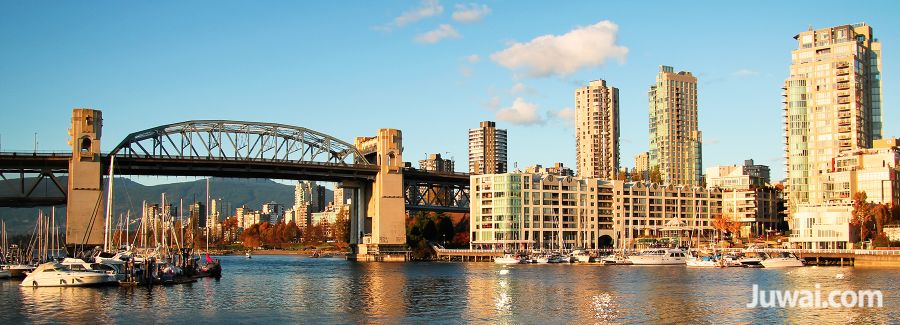You've successfully copied this link.
How will B.C.'s new 20% tax sway Chinese buyers in Canada?

British Columbia (B.C.) has just upped its foreign buyer tax from 15% to 20%, and introduced a speculation tax.1
Announced in the 2018 Provincial Budget by B.C. Finance Minister Carole James, this latest effort by the B.C. government to create more affordable, fairer housing market, and enable domestic homebuyers get onto the property ladder in Canada.2, 3, 4
New reporting rules for buyers will also be set in place, whereby foreign buyers are required to offer more comprehensive disclosure of information – household information, worldwide income, and social insurance numbers, to name some – which will then be placed into a public beneficial ownership registry to provide more transparency on true owners of property within the province.2, 5
Interestingly, the new speculation tax – set to come into effect in the fall of 20183 – is actually more like a non-resident owner levy instead, as it will impose a 2% tax on both domestic and international homebuyers who own a vacant property in the B.C. but do not pay income tax.5, 6
The big question is, how would these affect Chinese buyer interest in Canada, or more specifically, Vancouver and the rest of B.C.?
Chinese enduring love for Canada and Vancouver
Despite the foreign buyer taxes imposed in the popular provinces of Ontario and British Columbia, Canada ranked as the fourth-most favoured investment destinations for Chinese buyers on Juwai.com in 2017.
A recent Juwai survey also revealed Canada continued popularity, scoring as the third most favoured country for outbound Chinese to buy a home in while holidaying abroad this year, just behind the US and Australia.
Indeed, there’s no question that the Chinese love for Canada remains robust, and Vancouver is undoubtedly one of the hottest housing markets there with homebuyers from China – Vancouver retained its ranking as the second most-viewed Canadian city for Chinese buyers on Juwai.com last year.
Find out more about the top 10 Canadian cities for Chinese investors in 2017.
This begs the question on whether increasing the foreign buyer tax from 15% to 20% will really deter Chinese homebuyers from venturing into the Vancouver market.
Potential impact of new tax increase on China homebuyers
From our point of view, the raised foreign buyer taxes is likely to have minimal impact on wealthy Chinese buyers seeking to purchase in Vancouver or elsewhere in the B.C. province. – whatever dip in Chinese buyer demand there isn't due to the raised foreign buyer taxes, but rather because of its real estate prices that are overpriced.
After all, despite a slight cooling of the Vancouver housing market shortly after the foreign buyer tax came into effect in August 2016, the foreign buyer taxes has done little to really lower property prices in Vancouver.
According to VICE Money, Vancouver home prices averaged at $1.03 million back in August 2016 before the 15% foreign buyer tax was imposed. And while home prices in Vancouver did dip following its implementation, property prices was on the upsurge once again by February 2017.6
Fast forward to January 2018, and the average price to acquire a Metro Vancouver home was still at $1.03 million, as revealed by data from the B.C. Real Estate Association.6
“For higher-income buyers who are committed for personal or professional reasons to buying in Vancouver, the tax will not keep them from purchasing,” explained Juwai.com CEO Carrie Law to Better Dwelling.
However, the tax change could potentially affect lower-income families from China, as increased taxes is likely place greater financial pressure on mainland Chinese families with a more limited budget.
“It would be reasonable to expect the average price of homes that middle-class buyers acquire to decrease in line with the amount of the tax increase. That would leave their total transaction cost about the same,” added Law.
“Of course, if these families can obtain permanent residency in Canada, the tax does not apply to them.”
Looking forward
How the increased B.C. foreign buyer taxes would pan out with Chinese property investors remain very much up in the air. Will Chinese buyers gravitate more towards other states in Canada, such as Montreal, or even redirect their focus to nearby Seattle in the US? Both scenarios are entirely possible, but only time will tell.
The rest of Canada, though, may stand to receive increased Chinese attention and interest this year, not only because of the raised B.C. foreign buyer taxes, but also thanks to a new national mortgage stress test that came into play on 1 January 2018.7
Put together with an increased key interest rate to 1.25%8, the combined effect of stricter mortgage rules and raised interest rates could lead to a significant cooling of home prices in Canada this year.9, 10
Should that happen, aspiring homebuyers – particularly the Chinese – who have been sitting on the sidelines could possibly be tempted to get back into the fray.
Sources: 1. Vancouver Courier: Why B.C.’s new real estate speculation tax is not a speculation tax; 2. Lexology: BC Government Budget 2018 – Real estate changes; 3. BuzzBuzzNews: New BC taxes aimed at foreign homebuyers won’t solve housing affordability crisis: experts; 4. Financial Post: Vancouver’s hot housing market just got tougher for wealthy Chinese; 5. Times Colonist: B.C. Budget: Foreign buyers tax coming to Victoria, Nanaimo; 6. VICE Money: B.C.’s foreign buyers tax hike simply a “political move” say experts; 7. CBC News: Stress tests, foreign buyers and higher rates likely to impact housing market in 2018; 8. Global News: Bank of Canada raises key interest rate to 1.25%; 9. BNN: Canadian home prices to cool in 2018 as rates rise, mortgage rules hit: Poll; 10. Financial Post: Housing market to hit slow patch on back of interest rate hike, new mortgage rules;
Liked this article? Sign up for free to get Juwai Juwai Asia Market updates!
2024 © Juwai. All Rights Reserved Privacy Policy | Terms of Service


